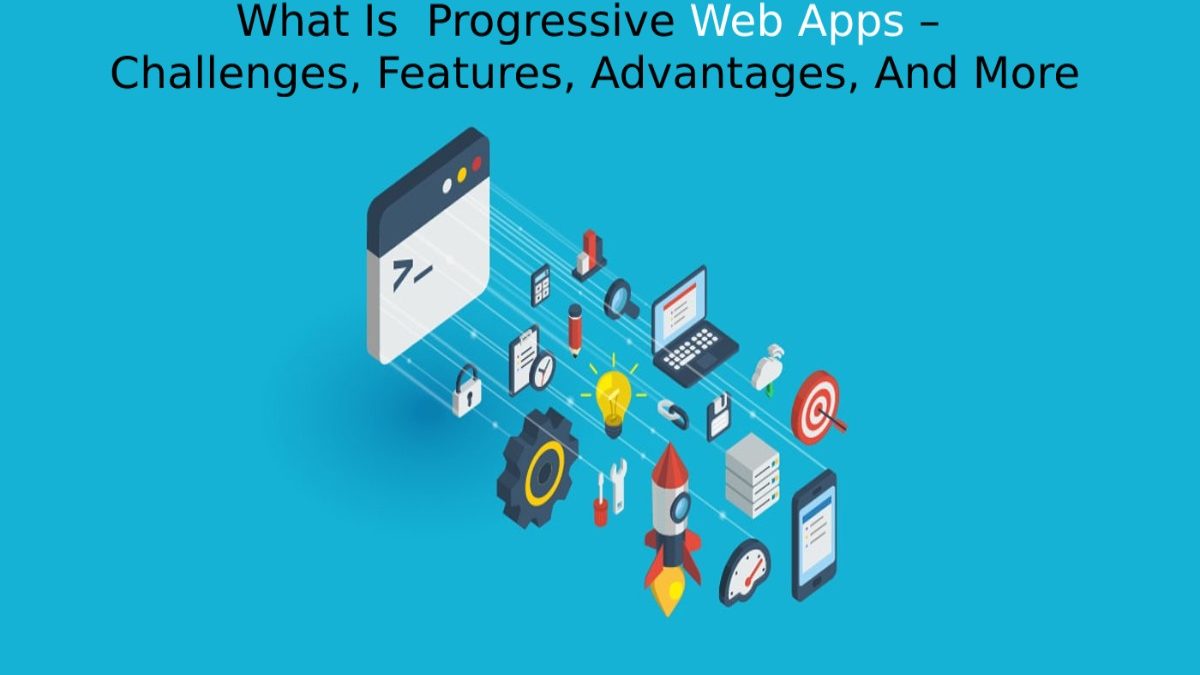Progressive web apps will excite for quite some time. Since Google engineer Alex Russell coined the term in 2015, many people have dubbed it the future of app development, citing its benefits repeatedly.
Table of Contents
What Are Progressive Web Apps?
Progressive Web Apps or PWA combines a web application and a native application. Its website has all the features of a native application, an amalgamation of the best elements of both.
Advantages Of PWA Over Native Applications
The PWA vs. Native Apps debate has been ongoing for quite a while now. While PWAs cannot replace native apps, they have some advantages that make them equal.
One of the most notable advantages of PWAs is that they can easily install itself instead of a native app that needs to be downloaded explicitly from an app store. Progressive web apps also take up less storage space on your device than native apps, which are generally larger files. An essential advantage of PWA over native apps is that it costs much less to develop and maintain than a native app. An advantage of PWAs over a native app is that, unlike a native app, it comes with the mobile-first index and helps you with search engine optimization.
Progressive Web Apps’ Challenges
Although the Progressive Web App has many advantages, it also has disadvantages. Below are some of the challenges when implementing PWAs for your business.
Limited Browser Support For Ios
Progressive web apps only work on iOS 11.3 and above and face many technical issues when running on Safari. It is a big challenge for PWAs, as Safari dominates 51 percent of the browser market in the US.
Missing App Store Traffic
While it is an advantage that PWAs don’t go through the long app download process like native applications, they also miss a large portion of the users who primarily search for apps in the app store.
Impossible Access To Device Hardware And Software
Unlike native applications, PWAs cannot access many device features such as Bluetooth, the camera and the phone’s storage. As a result, PWAs cannot perform many possible functions with native applications.
Progressive Web Apps -Battery Usage
Progressive web apps can work very fast and offer the best integration and loading time, but with all these features comes the downside of quickly draining the device’s battery.
Concerns About Security And Privacy
When we download an app from the App Store, we are 100 percent sure that it will not compromise our privacy or cause any harm to our device.
We think twice before installing a PWA from an unknown source or website, but that’s not the case with native apps.
Progressive Web Apps Features Are Still Relatively New To Most Developers
Even though Google announced Progressive Web Apps back in 2015, it’s still a relatively new technology. And that novel touch presents a high barrier to entry for many developers. Since it can be pretty challenging to work in an environment that hasn’t established a community, expertise, and shared best practices, it’s not for new people to get a foothold here. But these new people are needed to build a thriving community around PWA development. So we need more people who are not afraid to take that first step.
Luckily, Google is making a significant effort to promote Progressive Web Apps. By training people to work with things like modern WebAPIs, hopefully, more and more developers will finally embrace these new features. Tutorials and best practices will evolve faster, accelerating community growth with more people on board.
No Budget For Progressive Web Apps Development In Companies
The second issue with PWA development is budget. I have the feeling that development budgets in companies are often allocated relatively conservatively. To reach a mobile audience, you develop a native app. While you may not need native features like accessing sensors, develop a native app as this is the usual approach. It, in turn, means that there is often no budget for app development approaches such as progressive web apps. So, unless companies start using this new technology for their businesses and pour money into PWA development, we probably won’t see any responsive web apps in the future. My advice would be to give web developers the necessary financial and time leeway and explore new technologies. Then hopefully, we’ll see a lot more impressive case studies soon.
Missing Features On Native Devices
As developers, we want to use the total capacity of a device. Without a doubt, we can’t do that with Progressive Web Apps at the moment. Several features for native instruments are still missing. For example, you cannot access the clipboard or file system within your PWA – although this could be an essential requirement for many applications. The lack of the right tools makes app development even more difficult. Of course, this hinders the integration of progressive web apps.
High Battery Consumption
Progressive web apps consume more battery than native apps because they are written in high-level web code, requiring phones to do more work to interpret the code. Users who notice a decrease in battery performance are less likely to use this type of app if they need to extend their battery life.
Conclusion Progressive Web Apps
The benefits of PWA are many, and as we know, there are always two sides to a coin. But as the term “progressive” itself suggests, changes are being implemented at a breakneck pace. Technology is advancing daily, and soon solutions to the glitches will be available. Similarly, there are also challenges of PWA.
Considering all aspects, we can honestly say that PWA as a technology is still in its infancy. While the feature richness and overall user experience are pretty good, many things are still to fix and developed. Above all, the developer community still needs to grow with the expertise and established best practices. In addition, the issue of distribution poses a significant challenge for the spread of progressive web apps. If web apps don’t make it to the app store, no matter how good aspects such as ease of development and user experience can be, it doesn’t matter how good she is if nobody gets to know your app.





Review What Is Progressive Web Apps – Challenges, Features, Advantages, And More.